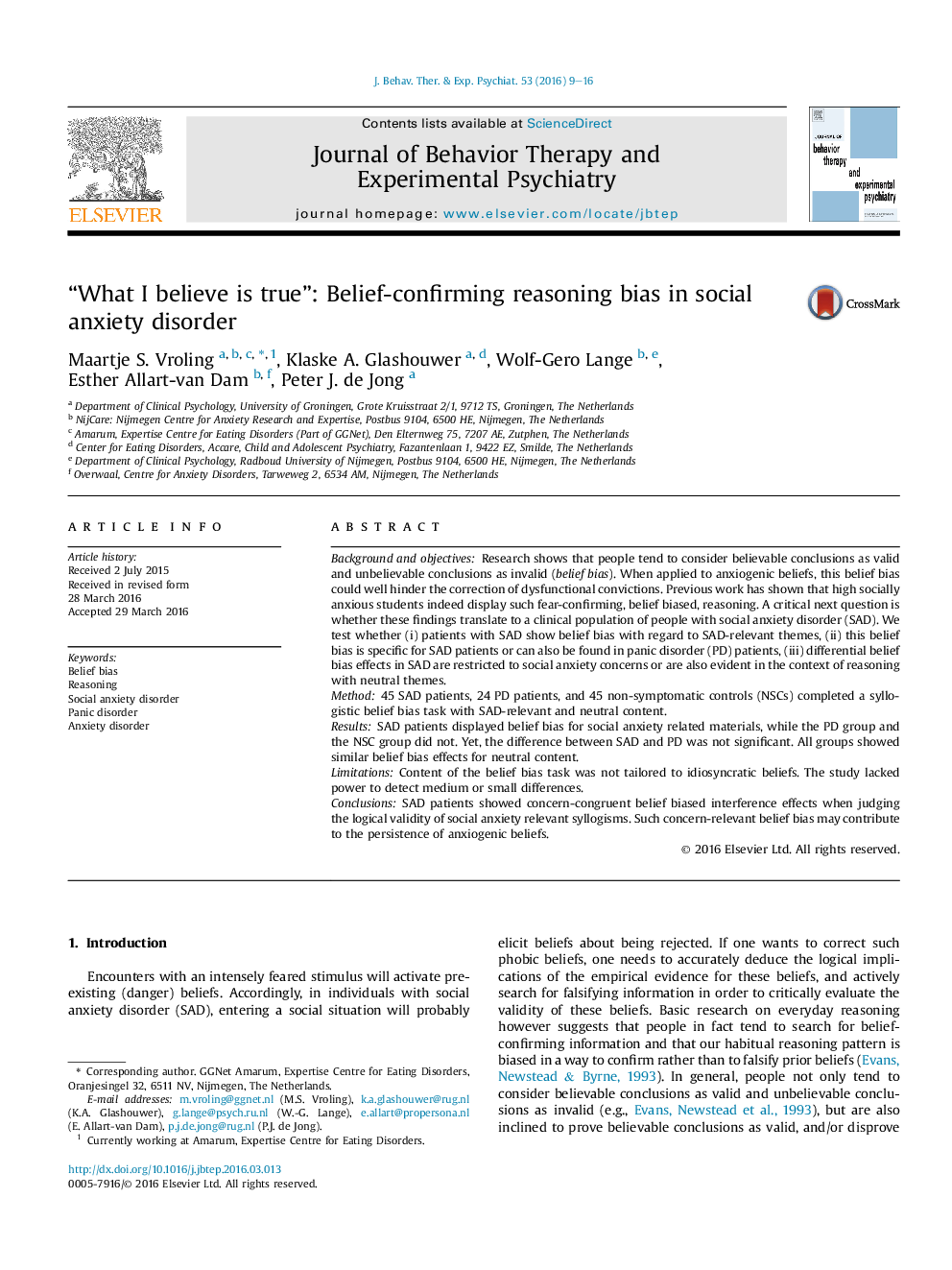| کد مقاله | کد نشریه | سال انتشار | مقاله انگلیسی | نسخه تمام متن |
|---|---|---|---|---|
| 5039035 | 1473063 | 2016 | 8 صفحه PDF | دانلود رایگان |
- People tend to reason in line with what they believe to be true (belief bias).
- SAD patients applied this belief biased reasoning strategy to social anxiety beliefs.
- This belief bias likely contributes to the consolidation of dysfunctional beliefs.
Background and objectivesResearch shows that people tend to consider believable conclusions as valid and unbelievable conclusions as invalid (belief bias). When applied to anxiogenic beliefs, this belief bias could well hinder the correction of dysfunctional convictions. Previous work has shown that high socially anxious students indeed display such fear-confirming, belief biased, reasoning. A critical next question is whether these findings translate to a clinical population of people with social anxiety disorder (SAD). We test whether (i) patients with SAD show belief bias with regard to SAD-relevant themes, (ii) this belief bias is specific for SAD patients or can also be found in panic disorder (PD) patients, (iii) differential belief bias effects in SAD are restricted to social anxiety concerns or are also evident in the context of reasoning with neutral themes.Method45 SAD patients, 24 PD patients, and 45 non-symptomatic controls (NSCs) completed a syllogistic belief bias task with SAD-relevant and neutral content.ResultsSAD patients displayed belief bias for social anxiety related materials, while the PD group and the NSC group did not. Yet, the difference between SAD and PD was not significant. All groups showed similar belief bias effects for neutral content.LimitationsContent of the belief bias task was not tailored to idiosyncratic beliefs. The study lacked power to detect medium or small differences.ConclusionsSAD patients showed concern-congruent belief biased interference effects when judging the logical validity of social anxiety relevant syllogisms. Such concern-relevant belief bias may contribute to the persistence of anxiogenic beliefs.
Journal: Journal of Behavior Therapy and Experimental Psychiatry - Volume 53, December 2016, Pages 9-16
